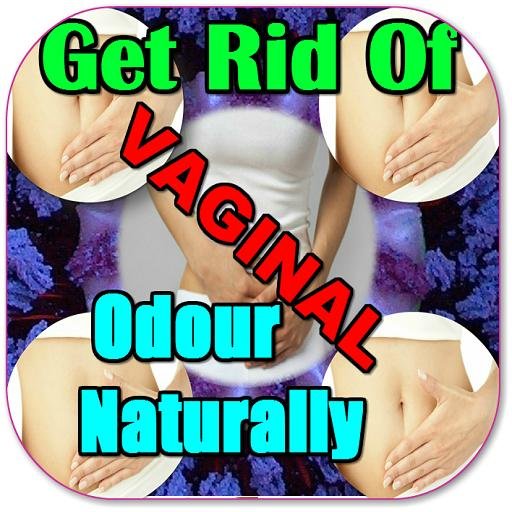10 Proven Ways to Avoid Vaginal Odor: Expert-Backed Tips for Freshness and Confidence
Introduction
Maintaining a fresh and healthy vaginal environment is essential for every woman’s comfort and confidence. While the vagina naturally has a mild scent, a strong or unpleasant odor can be concerning and may indicate an imbalance or infection. Understanding *how to avoid vaginal odor* involves adopting certain habits and being mindful of products and practices that affect vaginal health.
Understanding Vaginal Odor: What’s Normal and What’s Not?
Before diving into the solutions, it’s important to understand that vaginal odor varies from person to person and can change throughout the menstrual cycle. A slightly musky or tangy smell is normal, but a fishy, rotten, or foul odor could signal an infection like bacterial vaginosis (BV), yeast infections, or sexually transmitted infections (STIs). If accompanied by itching, burning, or unusual discharge, consulting a doctor is crucial.
10 Proven Ways to Avoid Vaginal Odor
1. Maintain Proper Hygiene
Good hygiene is the first step in preventing vaginal odor. The external genital area should be cleaned daily with lukewarm water and mild, unscented soap. The vagina itself is self-cleaning, meaning douching or using harsh cleansers can disrupt its natural bacterial balance.
– Wash the vulva (outer area) gently with water.
– Avoid scrubbing aggressively, as this can cause irritation.
– Always wipe from front to back after using the toilet to prevent bacterial infections.
Expert Insight: The Centers for Disease Control and Prevention (CDC) advises against douching, as it can increase the risk of bacterial vaginosis and other infections.
2. Wear Breathable Underwear
Tight or synthetic underwear can trap moisture, creating an environment where bacteria thrive.
– Choose cotton underwear, which absorbs moisture and allows air circulation.
– Avoid tight clothing like skinny jeans for extended periods.
– Sleep without underwear occasionally to allow ventilation.
Tip: Change out of sweaty or damp clothing, such as gym wear or swimsuits, as soon as possible.
3. Avoid Scented Products
Feminine sprays, scented soaps, and perfumed wipes may seem appealing but often contain harsh chemicals that irritate the vaginal area.
– Use fragrance-free menstrual products (tampons, pads, or liners).
– Avoid scented wipes or deodorants.
– Use pH-balanced cleansers if necessary.
According to gynecologists, scented products can disrupt the vaginal flora, leading to infections like bacterial vaginosis (Mayo Clinic).
4. Maintain a Healthy Diet
What you eat can influence your body’s natural odor. Staying hydrated and consuming probiotic-rich foods helps maintain vaginal health.
– Drink plenty of water to flush out toxins.
– Eat probiotic-rich foods like yogurt, kimchi, and kefir to promote healthy bacteria.
– Reduce sugar intake, as excessive sugar can promote yeast infections.
5. Practice Safe Sex
Unprotected sex can introduce bacteria into the vagina, leading to infections.
– Use condoms to protect against STIs.
– Wash the genital area before and after sex.
– Clean sex toys thoroughly before and after each use.
6. Avoid Douching
Douching washes away beneficial bacteria, making the vagina more susceptible to infections.
– Let your vagina clean itself naturally.
– If odor persists, see a doctor instead of masking it with douching.
7. Manage Menstrual Hygiene
During menstruation, proper hygiene is essential to avoid odor.
– Change tampons/pads every 4-6 hours.
– Consider menstrual cups, as they collect rather than absorb menstrual flow, reducing odor.
– Wash the genital area frequently during periods.
8. Take Probiotic Supplements
Probiotics help maintain the balance of good bacteria in the vagina, reducing odor-causing infections.
– Look for probiotic supplements with Lactobacillus strains.
– Incorporate fermented foods into your diet.
9. Wear Loose-Fitting Clothing
– Tight clothing can trap moisture, leading to bacterial overgrowth.
– Opt for loose, breathable fabrics like linen and cotton.
10. Consult a Healthcare Professional When Necessary
If vaginal odor is persistent and accompanied by symptoms like itching, burning, or discharge, see a gynecologist.
– Common causes include bacterial vaginosis, yeast infections, or STIs.
– Early treatment prevents complications and ensures optimal vaginal health.
How Lifestyle Impacts Vaginal Health*
Your lifestyle choices significantly affect vaginal health. Habits such as smoking, excessive alcohol intake, lack of exercise, and poor sleep patterns can disrupt the vaginal flora.
– Exercise regularly: Physical activity improves blood circulation, supporting vaginal and overall reproductive health.
– Manage stress: High stress levels can weaken the immune system, making the vagina more susceptible to infections.
– Get enough sleep: Adequate rest helps regulate hormones that influence vaginal moisture and pH balance.
– Avoid excessive antibiotic use: Antibiotics kill both harmful and beneficial bacteria, leading to imbalances.
Home Remedies That Work
If you prefer natural approaches, several home remedies can help maintain vaginal freshness:
– Apple Cider Vinegar Soaks: Adding apple cider vinegar to a warm bath (one cup in a bathtub of water) may help restore pH balance and eliminate odor-causing bacteria.
– Yogurt and Probiotics: Consuming unsweetened yogurt and taking probiotic supplements help maintain a healthy vaginal microbiome.
– Tea Tree Oil: Known for its antifungal properties, diluted tea tree oil (few drops mixed with coconut oil) can be applied externally to reduce bacterial growth.
– Garlic: Eating raw garlic has antimicrobial effects that can combat bacterial infections from within.
– Coconut Oil: With antifungal and antibacterial properties, organic coconut oil can be applied externally to reduce irritation and bacterial overgrowth.
Conclusion
By following these 10 proven ways to avoid vaginal odor and incorporating healthy lifestyle habits and home remedies, you can maintain a fresh and healthy vaginal environment with confidence. Remember, vaginal health is an essential part of overall well-being. If you experience unusual odors or symptoms, don’t hesitate to seek medical advice.
Read more about women’s health generally here
